With the goal of changing the thinking and working style of ethnic minorities, helping them to escape poverty sustainably, the Party Committee and the government of Tra Bong district have focused on supporting people to develop production linked to the value chain, helping people have a stable income. On November 17, the Ministry of Agriculture and Rural Development coordinated with the People's Committee of Dong Thap province to organize the Conference "Summary of the Pangasius Industry in 2024 and discuss solutions to implement tasks in 2025". This is an event within the framework of the Dong Thap Pangasius Festival 2024. On the morning of November 18, in Hanoi, the Ministry of Education and Training coordinated with the Vietnam National University, Hanoi and the University of Economics (Vietnam National University, Hanoi) to organize a meeting with teachers and education managers on the occasion of Vietnamese Teachers' Day, November 20, and awarded the Third-class Labor Medal to the University of Economics. General Secretary To Lam chaired and delivered a speech at the meeting. On November 18, a working delegation of the Ministry of National Defense led by Major General Pham Van Hoat - Deputy Director of the Department of Operations, General Staff of the Vietnam People's Army, visited and comprehensively inspected the results of the implementation of tasks in 2024 at the Border Guard (BĐBP) of Kien Giang province. Also participating in the working delegation were Major General Tran Ngoc Huu - Deputy Commander of the BĐBP, and heads of departments, divisions, and specialized offices according to the work plan. Recently, Ngoc Hoi district (Kon Tum) has effectively implemented the policy of supporting residential land, production land, and domestic water for ethnic minority households. Thereby, helping ethnic minorities stabilize their lives and escape poverty. Establishing new villages and hamlets to move people in areas at risk of natural disasters to safe places is extremely necessary and humane. However, resettlement and population stabilization need to be associated with suitable livelihoods so that resettled people can truly "settle down". After nearly 4 years of drastic implementation of the National Target Program on Socio-Economic Development in Ethnic Minorities and Mountainous Areas for the 2021-2030 period; Phase I: from 2021 to 2025 (National Target Program 1719), the socio-economic life of ethnic minorities and mountainous areas in Phu Tho province has improved. Electricity, roads, schools, and stations have been invested in and newly built, and the lives of ethnic minorities have had many positive changes. Emerging as an attractive tourist destination, Mang Den (Kon Plong district, Kon Tum) is considered a miniature Da Lat in the Northern Central Highlands with its climate, local culture, cuisine, and many unique natural features. But the lesson of Da Lat urbanization is a problem for Mang Den to refer to and "learn from experience" in order to preserve its inherent attractiveness. Implementing the National Target Program on Socio-Economic Development in Ethnic Minority and Mountainous Areas, Phase I: From 2021 - 2025, the Government assigned the Vietnam Women's Union to preside over the implementation of Project 8 "Implementing gender equality and solving urgent problems for women and children". From the 2021 - 2022 school year to now, hundreds of teachers in Ha Long city (Quang Ninh) have written volunteer applications to work with schools and classes in ethnic minority and mountainous areas. The rotation of teachers from schools in favorable areas to highland areas has added motivation and new spirit, helping students in difficult areas have the opportunity to access many teaching methods of teachers at the center; Although most people agree with the policy of Dak Ha district (Kon Tum) on socializing the upgrading of sidewalks through Dak Ha town, with the State investing 70% and the people supporting 30% of the estimated cost. However, due to some contents not being discussed and agreed upon during the implementation process, so far the contribution of funds from households is still slow. This has also been repeatedly proposed by people at meetings with voters of People's Councils at all levels. Mr. Ngo Khanh, Chairman of Ninh Phuoc District People's Committee, Ninh Thuan Province, said that implementing the National Target Program for Socio-Economic Development in Ethnic Minority and Mountainous Areas (National Target Program 1719), from 2022 to 2024, Ninh Phuoc District has disbursed a total of 2,212 million VND to implement Project 6 on preserving and promoting the fine traditional cultural values of ethnic minorities associated with tourism development. Of which, 2,009.9 million VND is central capital and 203 million VND is local counterpart capital. Information from Dong Nai Children's Hospital said that this unit has just recorded the first death in 2024 due to measles. The deceased child was HTH, 8 years old, living in the city. Bien Hoa has symptoms of continuous high fever with cough, runny nose, and rash all over the body. For the act of driving a motorbike in a zigzag, weaving, making and carrying dangerous weapons to "perform" on the road causing disorder, three teenagers in Song Ma district, Son La province were prosecuted and temporarily detained.
A typical example is the cinnamon production linkage development support project, with a total budget of over 9.5 billion VND from the National Target Program for Socio -Economic Development in Ethnic Minorities and Mountainous Areas. The project is implemented in 13 communes in ethnic minority and mountainous areas. The project aims to expand the cinnamon growing area, gradually forming a concentrated raw material area, and forming a cinnamon development value chain.
At the same time, support consulting on project establishment; varieties, materials, training on transferring new scientific and technological applications, promoting trade for products, establishing traceability codes and product consumption.
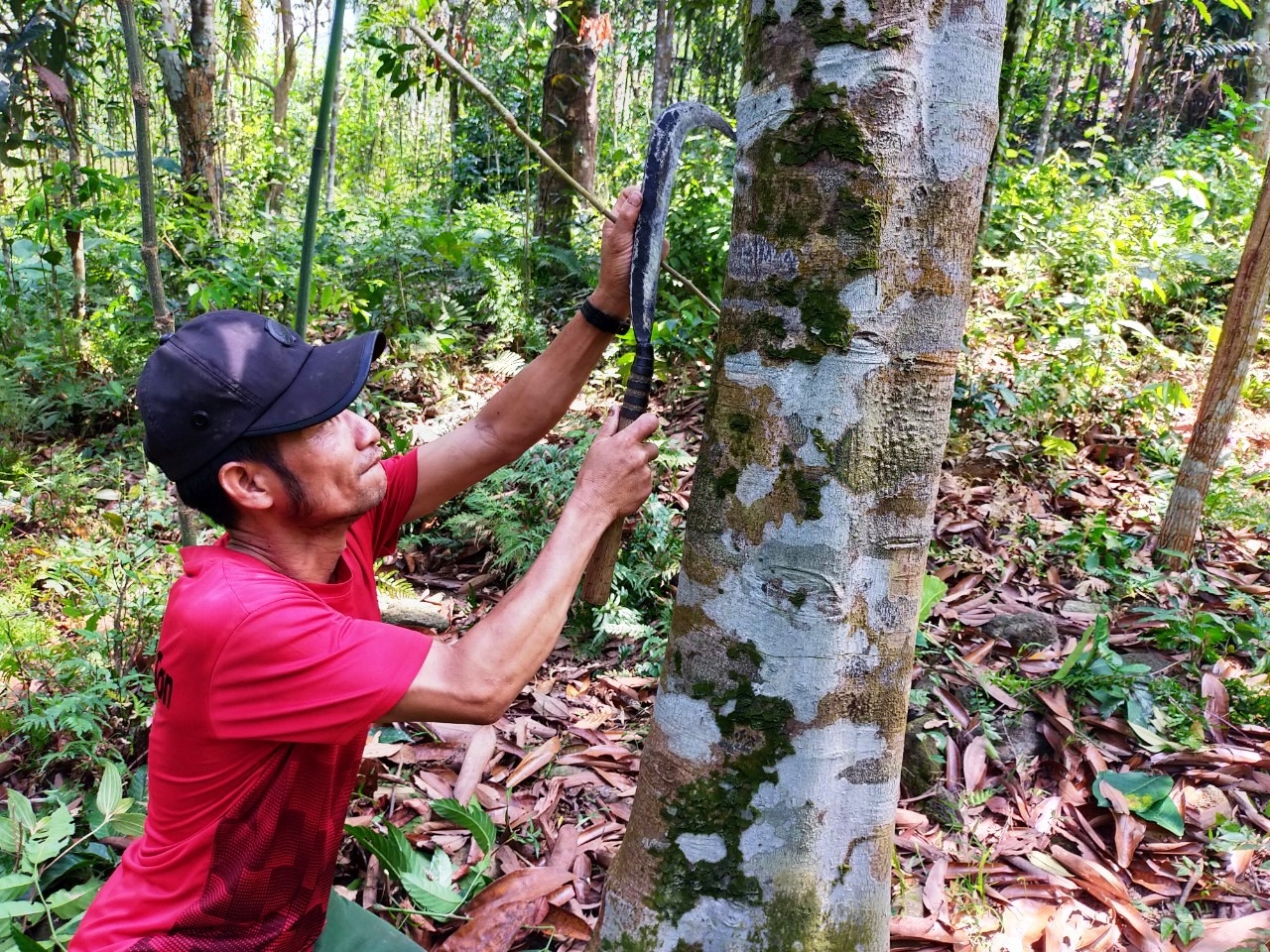
The households selected to participate in the project are those with experience and land to grow cinnamon. Mr. Ho Van Nang, in Tra Thuy commune (Tra Bong), joined the project in 2023. He was given 5,000 cinnamon seedlings and was trained in techniques and guided on the process of caring for cinnamon trees. Up to now, the cinnamon trees he planted have grown quite well, with a high survival rate.
Mr. Nang shared: My family has a cinnamon garden, but with traditional care, the cinnamon trees grow slowly and the quality is not guaranteed. Now we are guided by techniques and regularly supported by staff, so the cinnamon trees grow very well.
Mr. Ho Van Tham, Tra Hiep commune, Tra Bong district has a stable income of 100-150 million VND/year from 2 hectares of cinnamon. Mr. Tham said: Tra Bong cinnamon has a characteristic aroma, spicy taste and contains high essential oil content and is classified as one of the "four great medicinal herbs". Cinnamon bark and essential oil are widely used in the pharmaceutical industry, food processing, flavoring...
"Cinnamon trees are purchased by factories located right in the district and processed into many products. With stable output, cinnamon trees are cared for, preserved, and expanded by families and Co ethnic households here every year," Mr. Tham added.
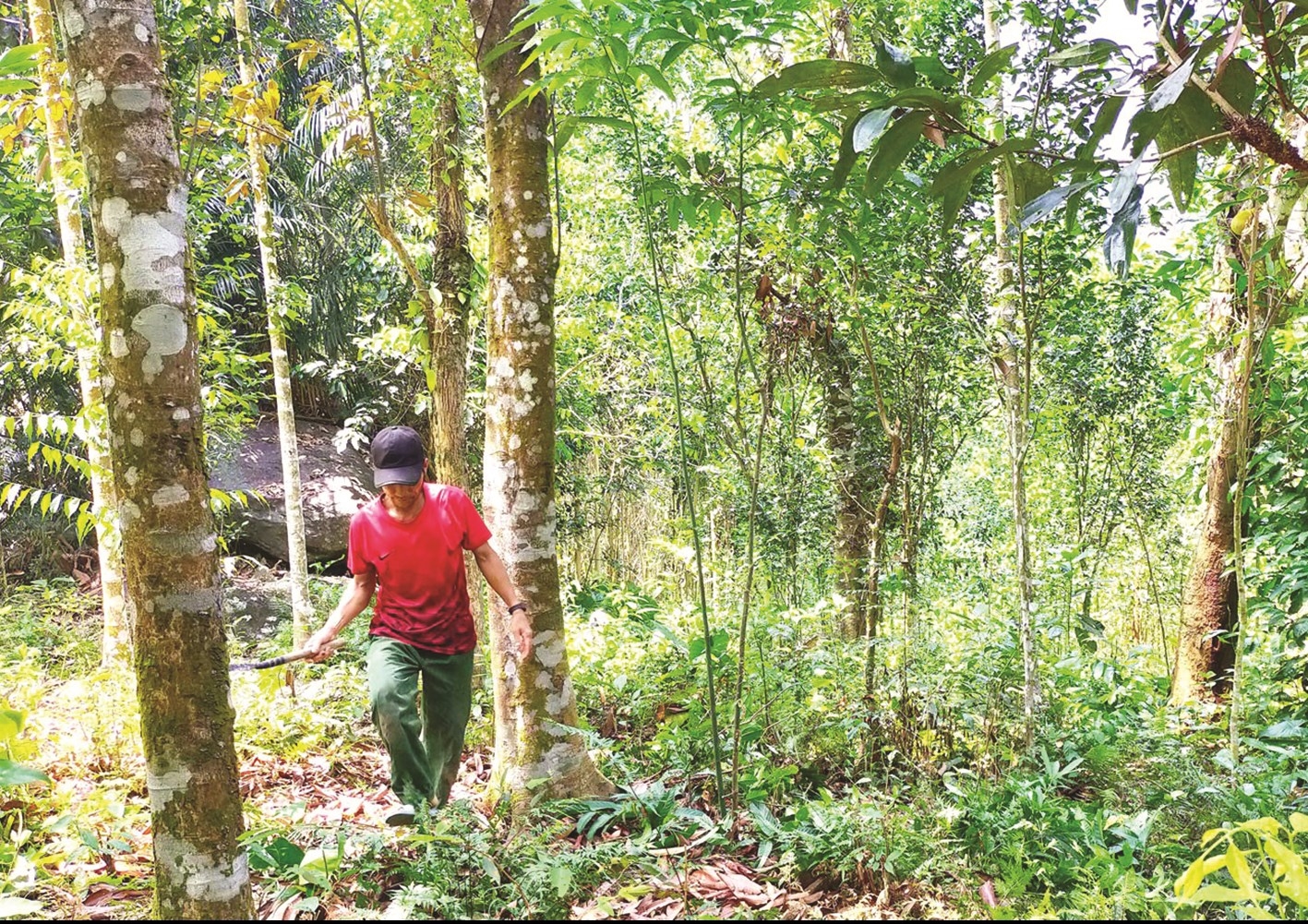
According to Mr. Nguyen Cong Vinh, Director of Tra Bong District Agricultural Service Center, cinnamon is a traditional crop in the district, bringing a significant source of income to the people. The above project is implemented with the goal of developing cinnamon trees with high quality and economic value products, contributing to increasing income for households, improving the quality of cinnamon raw material areas, meeting the demand for product production, as well as building the brand "Tra Bong Cinnamon Tree". At the same time, helping ethnic minorities change their "thinking and working style" in agricultural cultivation, as well as developing household economy.
“During the project implementation, we ensure from the supply of materials to the consumption of products and change people's awareness of cinnamon cultivation according to the chain. In the coming time, we will purchase products from households participating in the cinnamon project and neighboring households growing cinnamon in the area,” Mr. Vinh added.
According to Mr. Tran Van Suong, Vice Chairman of Tra Bong District People's Committee, in the past, people lived on cinnamon trees, and people peeled cinnamon and sold it spontaneously just to buy food. But now, cinnamon products have increased in value thanks to closer links in planting and purchasing. People who produce cinnamon trees are purchased by businesses to produce local products. In many high-quality cinnamon areas such as Tra Thuy and Tra Tho, businesses have come directly to contact people to purchase, or organized agents in the cinnamon areas to purchase for people.
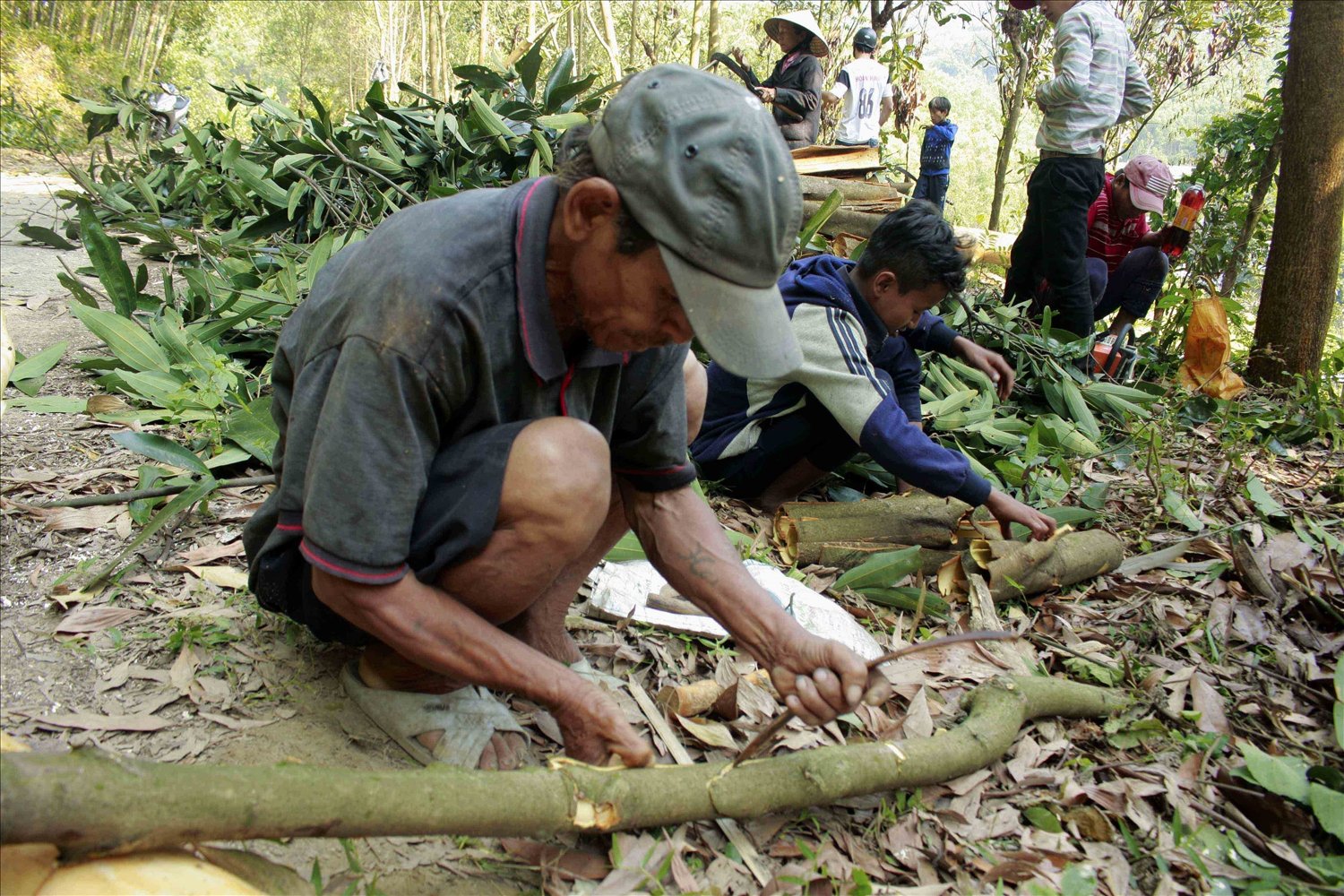
According to Mr. Suong, to develop cinnamon in particular and precious medicinal herbs in general according to the value chain to implement Decision 1353/QD-BYT dated May 26, 2022 of the Ministry of Health on the Plan "Investment and support for the development of precious medicinal herb growing areas" in the period of 2021-2025 under the National Target Program on socio-economic development in ethnic minority and mountainous areas, phase 1 (2021-2025), the Institute of Medicinal Materials - Ministry of Health has coordinated with Tra Bong district to survey and select planting locations and develop 15 types of precious medicinal herbs such as: Bai Bu, Vietnamese Codonopsis pilosula, Japanese Angelica, Ginger Se (Wind Ginger), Khoi leaf, Kim Tuyen orchid, cinnamon, purple cardamom, Cau Sam, Vietnamese ginseng, cardamom, Thien Nien Kien, Tho Phuc Linh and Agarwood.
By 2025, Tra Bong district aims to plant more than 2,300 hectares of medicinal plants in the communes of Son Tra, Tra Phong, Tra Bui, Tra Tay, Tra Thanh, Huong Tra; of which, there are 180 hectares of medicinal plants under the forest canopy, 30 hectares of high-tech planting. At the same time, 02 areas for preservation, preliminary processing, processing and extraction meeting GMP and GSP standards from cinnamon and other medicinal plants in Tra Bong will be formed.
“The development of medicinal plants in Tra Bong with the cooperation of the State and enterprises will contribute to creating jobs and stable income for at least 1,500 workers in the district, of which at least 50% of the workers are ethnic minorities,” Mr. Suong added.
Source: https://baodantoc.vn/tra-bong-quang-ngai-san-xuat-lien-ket-theo-chuoi-gia-tri-loi-ich-nhan-doi-1731934377084.htm





![[Photo] Readers line up to visit the photo exhibition and receive a special publication commemorating the 135th birthday of President Ho Chi Minh at Nhan Dan Newspaper](https://vphoto.vietnam.vn/thumb/1200x675/vietnam/resource/IMAGE/2025/5/17/85b3197fc6bd43e6a9ee4db15101005b)
![[Photo] Prime Minister Pham Minh Chinh chairs meeting on science and technology development](https://vphoto.vietnam.vn/thumb/1200x675/vietnam/resource/IMAGE/2025/5/17/ae80dd74c384439789b12013c738a045)
![[Photo] More than 17,000 candidates participate in the 2025 SPT Competency Assessment Test of Hanoi National University of Education](https://vphoto.vietnam.vn/thumb/1200x675/vietnam/resource/IMAGE/2025/5/17/e538d9a1636c407cbb211b314e6303fd)
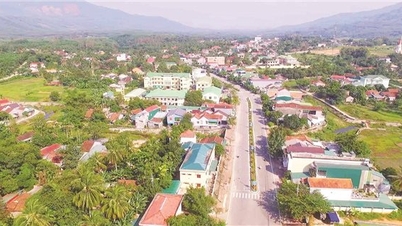


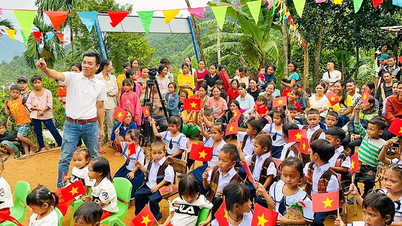








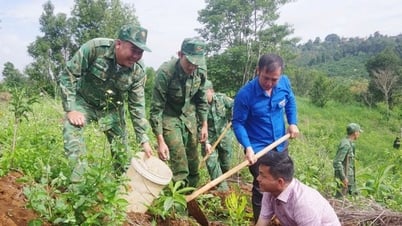


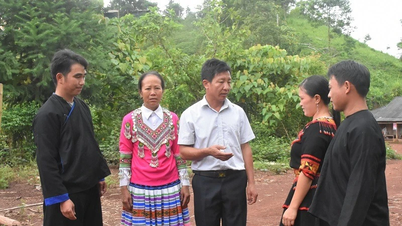
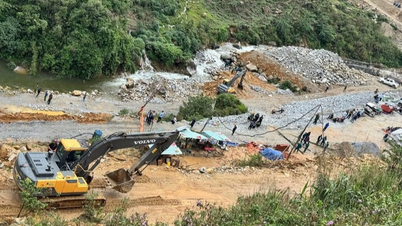
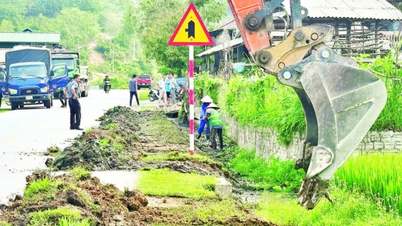










![[Photo] Nearly 3,000 students moved by stories about soldiers](https://vphoto.vietnam.vn/thumb/1200x675/vietnam/resource/IMAGE/2025/5/17/21da57c8241e42438b423eaa37215e0e)















































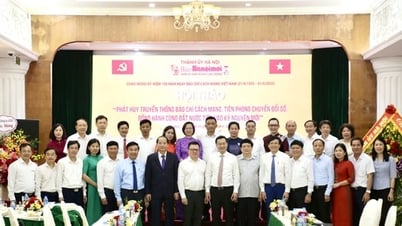

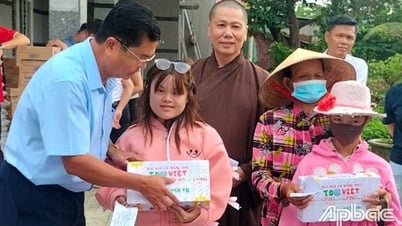

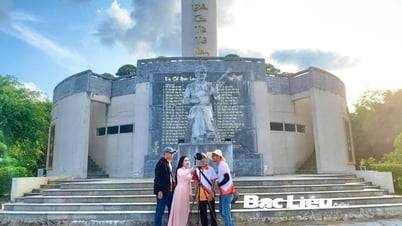


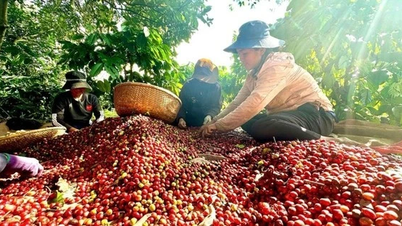

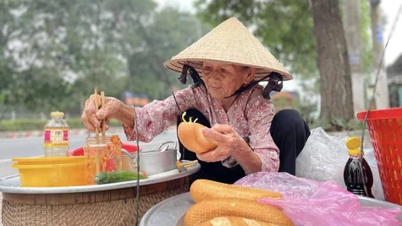











Comment (0)